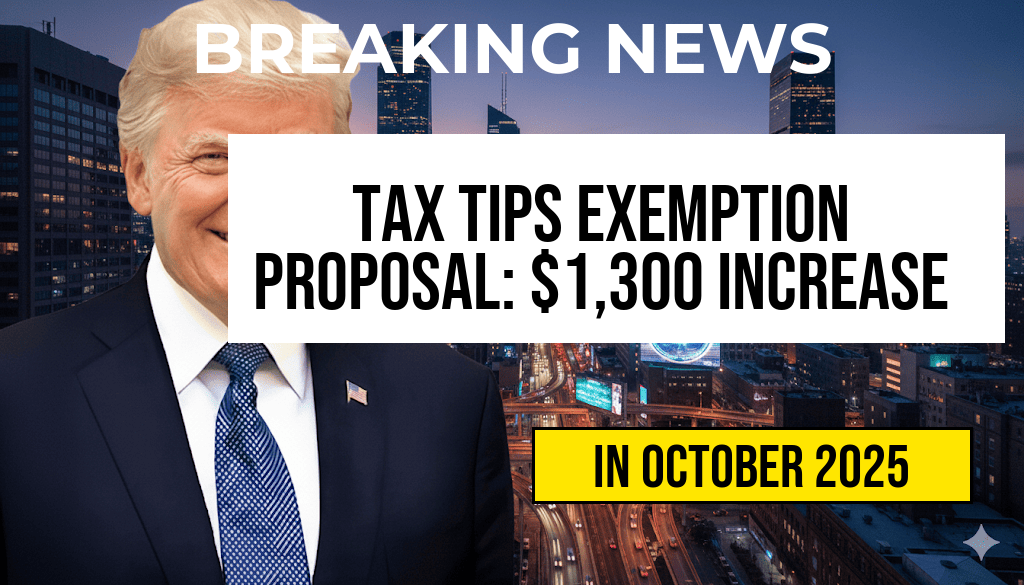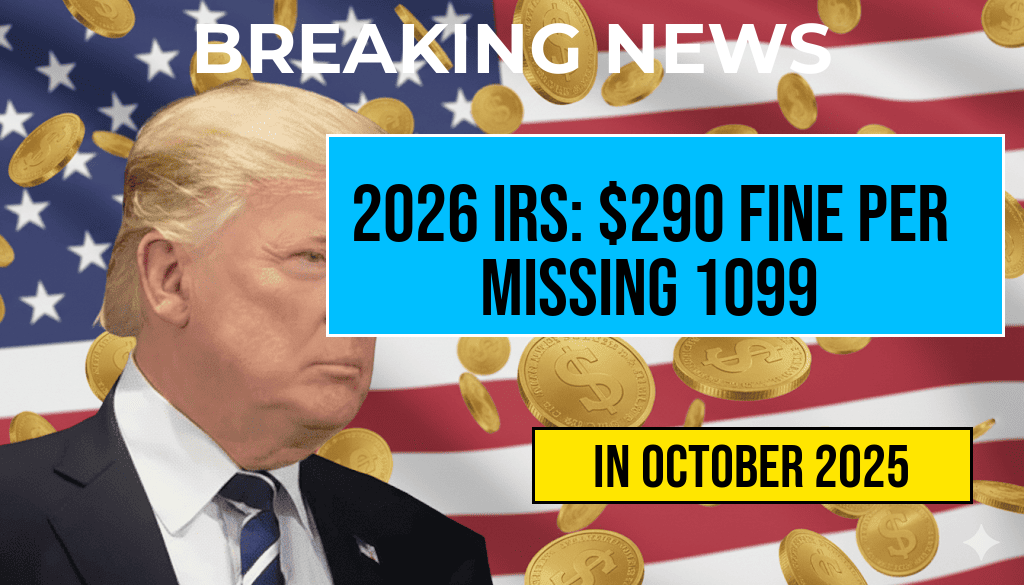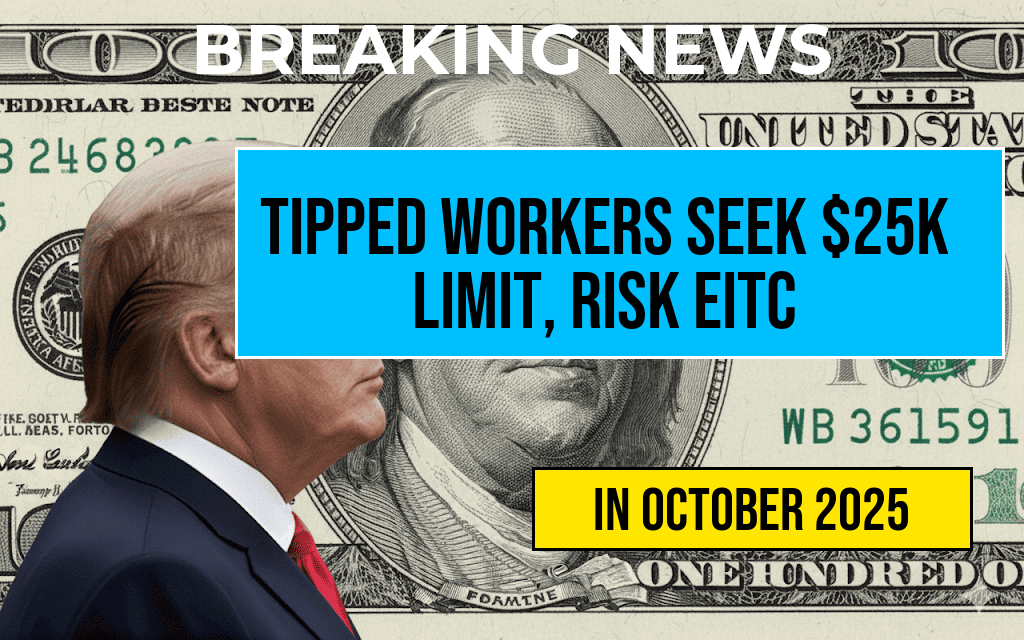2026 IRS Penalties: Each Missing 1099 Could Result in a $290 Fine
Starting in 2026, taxpayers and businesses who fail to file or furnish correct Form 1099 information returns could face significant penalties, with fines reaching up to $290 per missed or late submission. The Internal Revenue Service (IRS) has announced updated regulations that increase the stakes for those responsible for reporting miscellaneous income, including freelance workers, gig economy participants, and small businesses. These changes aim to bolster tax compliance but may impose financial burdens on those who inadvertently neglect their reporting obligations. As the IRS prepares to enforce these new standards, understanding the nuances of 1099 filing requirements becomes crucial for avoiding costly penalties.
What Prompted the Penalty Increase?
The IRS’s move to raise penalties aligns with efforts to improve tax data accuracy and reduce the tax gap— the difference between taxes owed and collected. Historically, penalties for incorrect or late filings have varied, but recent updates aim to incentivize timely and accurate reporting. According to the IRS, these adjustments are part of a broader strategy to ensure comprehensive income reporting from all sources, including independent contractors and small-scale entrepreneurs, who often rely on Form 1099-NEC and Form 1099-MISC.
Understanding the New Penalty Structure
Effective from the 2026 tax year, the IRS’s penalties for failing to file or furnish correct 1099 forms are as follows:
| Violation Type | Penalty per Form | Maximum Penalty (per calendar year) |
|---|---|---|
| Failing to file correct information returns by the due date | $290 | Up to $1,177,500 |
| Furnishing incorrect or incomplete information | $290 | Up to $1,177,500 |
| Willful neglect or intentional disregard | Potential criminal penalties, including fines and jail time |
These figures represent a substantial increase from previous thresholds, emphasizing the IRS’s focus on strict compliance. Notably, the maximum annual penalty limits are set to accommodate large-scale filers, such as financial institutions or large corporations, but small businesses and individual filers should be especially mindful of potential charges.
Who Must File a 1099?
Form 1099 reporting requirements cover a wide range of income sources. Generally, businesses must file these forms if they have paid $600 or more to an individual or entity in a calendar year for services, rent, prizes, or other income types. Independent contractors, freelancers, and gig workers often receive Form 1099-NEC, which reports nonemployee compensation.
- Freelancers earning more than $600 in a year
- Rental property owners receiving payments exceeding $600
- Financial institutions reporting interest or dividends
- Businesses paying independent contractors or vendors
Failing to issue or report these forms accurately can trigger penalties, especially if the omission is deemed intentional or negligent by the IRS.
Common Causes of 1099 Filing Failures
Many errors stem from simple oversights or misunderstandings of reporting thresholds. Common pitfalls include:
- Not receiving a W-9 form from the payee, leading to uncertainty about reporting obligations
- Misclassifying workers as independent contractors when they should be employees
- Failing to file on time due to administrative delays or oversight
- Incorrectly reporting amounts or payer/payee details
These mistakes, while sometimes unintentional, can be costly under the new penalty regime. The IRS recommends proactive measures, such as diligent recordkeeping and early communication with payees, to mitigate risks.
Mitigating Penalties and Ensuring Compliance
Taxpayers and businesses can adopt several strategies to avoid hefty fines:
- Maintain accurate, up-to-date records of all payments and transactions
- Request and verify the correct taxpayer identification number (TIN) using Form W-9
- File all 1099 forms electronically before the deadline to reduce errors and penalties
- Consult with tax professionals to clarify reporting obligations and deadlines
The IRS also offers penalty relief options in certain circumstances, particularly if filers can demonstrate reasonable cause for errors or delays. However, persistent non-compliance may lead to increased scrutiny and enforcement actions.
Implications for Small Businesses and Independent Workers
The elevated penalty limits underscore the importance of diligent tax reporting among small business owners and freelancers. For many, the cost of overlooked or late 1099 forms has historically been manageable, but the increased fines could significantly impact tight profit margins. Recognizing these risks, industry experts advise establishing clear internal processes and leveraging tax software that automates compliance tasks.
For more details on IRS reporting requirements and updates, visit the official IRS Filing Information Returns Electronically page or review the comprehensive guide on [Wikipedia](https://en.wikipedia.org/wiki/Form_1099).
Frequently Asked Questions
Question
What is the penalty for each missing 1099 form in 2026?
Each missing 1099 form in 2026 could result in a $290 fine.
Question
Who is responsible for submitting 1099 forms to the IRS?
Businesses and payers are responsible for submitting 1099 forms to report payments made to independent contractors and vendors.
Question
How can I avoid penalties for missing 1099 forms?
To avoid penalties, ensure accurate and timely filing of all required 1099 forms by the IRS deadline and maintain organized records of payments.
Question
Will the penalty amount change in 2026?
Yes, the penalty amount for each missing 1099 form is set to increase to $290 in 2026, up from previous years.
Question
Are there any exceptions or situations where the penalty does not apply?
In certain cases, such as small businesses or unintentional errors, the IRS may waive or reduce penalties, but it is important to review specific guidelines and consult a tax professional.









